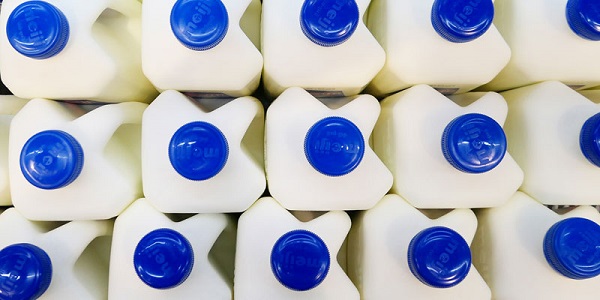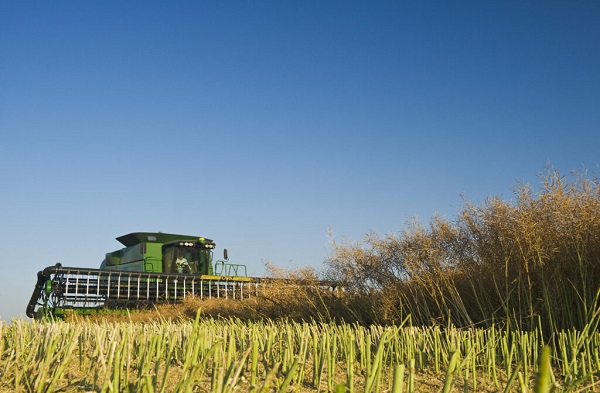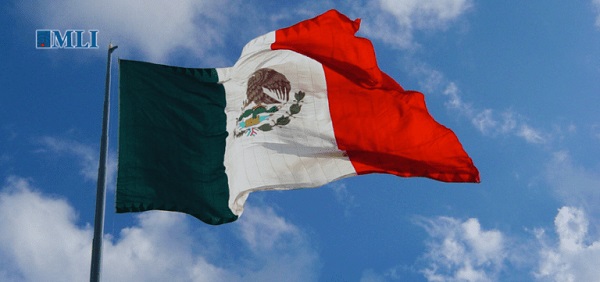Agriculture
Sweeping ‘pandemic prevention’ bill would give Trudeau government ability to regulate meat production

From LifeSiteNews
Bill C-293, ‘An Act respecting pandemic prevention and preparedness,’ gives sweeping powers to the federal government in the event of a crisis, including the ability to regulate meat production.
The Trudeau Liberals’ “pandemic prevention and preparedness” bill is set to become law despite concerns raised by Conservative senators that the sweeping powers it gives government, particularly over agriculture, have many concerned.
Bill C-293, or “An Act respecting pandemic prevention and preparedness,” is soon to pass its second reading in the Senate, which all but guarantees it will become law. Last Tuesday in the Senate, Conservative senators’ calls for caution on the bill seemed to fall on deaf ears.
“Being from Saskatchewan I have heard from many farmers who are very concerned about this bill. Now we hear quite a short second reading speech that doesn’t really address some of those major concerns they have about the promotion of alternative proteins and about the phase-out, as Senator Plett was saying, of some of their very livelihoods,” said Conservative Senator Denise Batters during debate of the bill.
Batters asked one of the bill’s proponents, Senator Marie-Françoise Mégie, how they will “alleviate those concerns for them other than telling them that they can come to committee, perhaps — if the committee invites them — and have their say there so that they don’t have to worry about their livelihoods being threatened?”
In response, Mégie replied, “We have to invite the right witnesses and those who will speak about their industry, what they are doing and their concerns. Then we can find solutions with them, and we will do a thorough analysis of the issue. This was done intentionally, and I can provide all these details later. If I shared these details now, I would have to propose solutions myself and I do not have those solutions. I purposely did not present them.”
Bill C-293 was introduced to the House of Commons in the summer of 2022 by Liberal MP Nathaniel Erskine-Smith. The House later passed the bill in June of 2024 with support from the Liberals and NDP (New Democratic Party), with the Conservatives and Bloc Quebecois opposing it.
Bill C-293 would amend the Department of Health Act to allow the minister of health to appoint a “National pandemic prevention and preparedness coordinator from among the officials of the Public Health Agency of Canada to coordinate the activities under the Pandemic Prevention and Preparedness Act.”
It would also, as reported by LifeSiteNews, allow the government to mandate industry help it in procuring products relevant to “pandemic preparedness, including vaccines, testing equipment and personal protective equipment, and the measures that the Minister of Industry intends to take to address any supply chain gaps identified.”
A close look at this bill shows that, if it becomes law, it would allow the government via officials of the Public Health Agency of Canada, after consulting the Minister of Agriculture and Agri-Food and of Industry and provincial governments, to “regulate commercial activities that can contribute to pandemic risk, including industrial animal agriculture.”
Text from the bill also states that the government would be able to “promote commercial activities that can help reduce pandemic risk,” which includes the “production of alternative proteins, and phase out commercial activities that disproportionately contribute to pandemic risk, including activities that involve high-risk species.”
The bill has been blasted by the Alberta government, who warned that it could “mandate the consumption of vegetable proteins by Canadians” as well as allow the “the federal government to tell Canadians what they can eat.”
As reported by LifeSiteNews, the Trudeau government has funded companies that produce food made from bugs. The World Economic Forum, a globalist group with links to the Trudeau government, has as part of its Great Reset agenda the promotion of “alternative” proteins such as insects to replace or minimize the consumption of beef, pork, and other meats that they say have high “carbon” footprints.
Trudeau’s current environmental goals are in lockstep with the United Nations’ “2030 Agenda for Sustainable Development” and include phasing out coal-fired power plants, reducing fertilizer usage, and curbing natural gas use over the coming decades, as well as curbing red meat and dairy consumption.
Agriculture
Ottawa may soon pass ‘supply management’ law to effectively maintain inflated dairy prices

From the Fraser Institute
Many Canadians today face an unsettling reality. While Canada has long been known as a land of plenty, rising living costs and food insecurity are becoming increasingly common concerns. And a piece of federal legislation—which may soon become law—threatens to make the situation even worse.
According to Statistics Canada, rising prices are now “greatly affecting” nearly half of Canadians who are subsequently struggling to cover basic living costs. Even more alarming, 53 per cent are worried about feeding their families. For policymakers, few national priorities are more pressing than the ability of Canadians to feed themselves.
Between 2020 and 2023, food prices surged by 24 per cent, outpacing the overall inflation rate of 15 per cent. Over the past year, more than one million people visited Ontario food banks—a 25 per cent increase from the previous year.
Amid this crisis, a recent academic report highlighted an unforgivable waste. Since 2012, Canada’s dairy system has discarded 6.8 billion litres of milk—worth about $15 billion. This is not just mismanagement, it’s a policy failure. And inexcusably, the federal government knows how to address rising prices on key food staples but instead turns a blind eye.
Canada’s dairy sector operates under a “supply management” system that controls production through quotas and restricts imports via tariffs. Marketing boards work within this system to manage distribution and set the prices farmers receive. Together, these mechanisms effectively limit competition from both domestic and foreign producers.
This rigid regulated system suppresses competition and efficiency—both are essential for lower prices. Hardest hit are low-income Canadians as they spend a greater share of their income on essentials such as groceries. One estimate ranks Canada as having the sixth-highest milk prices worldwide.
The price gap between the United States and Canada for one litre of milk is around C$1.57. A simple calculation shows that if we could reduce the price gap by half, to $0.79, Canadians would save nearly $1.9 billion annually. And eliminating the price gap would save a family of four $360 a year. There would be further savings if the government also liberalized markets for other dairy products such as cheese, butter and yogurt. These lower costs would make a real difference for millions of Canadians.
Which brings us back to the legislation pending on Parliament Hill. Instead of addressing the high food costs, Ottawa is moving in the opposite direction. Bill C-282, sponsored by the Bloc Quebecois, has passed the House of Commons and is now before the Senate. If enacted, it would stop Canadian trade negotiators from letting other countries sell more supply-managed products in Canada as part of any future trade deal, effectively increasing protection for Canadian industries and creating another legal barrier to reform. While the governing Liberals hold ultimate responsibility for this bill, all parties to some degree support it.
Supply management is already causing trade friction. The U.S. and New Zealand have filed disputes (under the Canada-United States-Mexico Agreement and the Comprehensive and Progressive Agreement for Trans-Pacific Partnership) accusing Canada of failing to meet its commitments on dairy products. If Canada is found in violation, it could face tariffs or other trade restrictions in unrelated sectors. Dairy was also a sticking point in negotiations with the United Kingdom, leading the British to suspend talks on a free trade deal. The costs of defending supply management could ripple farther than agriculture, hurting other Canadian businesses and driving up consumer costs.
Dairy farmers, of course, have invested heavily in the system, and change could be financially painful. Industry groups including the Dairy Farmers of Canada carry significant political influence, especially in Ontario and Quebec, making it politically costly for any party to propose reforms. The concerns of farmers are valid and must be addressed—but they should not stand in the way of opening up these heavily regulated agricultural sectors. With reasonable financial assistance, a gradual transition could ease the burden. After all, New Zealand, with just 5 million people, managed to deregulate its dairy sector and now exports 95 per cent of its milk to 130 countries. There’s no reason Canada could not do something similar.
Bill C-282 is a flawed piece of legislation. Supply management already hurts the most vulnerable Canadians and is the root cause of two trade disputes that threaten harm to other Canadian industries. If passed, this law will further tie the government’s hands in negotiating future free trade agreements. So, who benefits from it? Certainly not Canadians struggling with food insecurity. The government’s refusal to modernize an outdated inefficient system forces Canadians to pay more for basic food staples. If we continue down this path, the economic damage could spread to other sectors, leaving Canadians to bear an ever-increasing financial burden.
Author:
Agriculture
2024 harvest wrap-up: Minister Sigurdson

As the 2024 growing season comes to a close, Minister of Agriculture and Irrigation RJ Sigurdson issued the following statement:
“While many Albertans were enjoying beautiful fall days with above-average temperatures, farmers were working around the clock to get crops off their fields before the weather turned. I commend their continued dedication to growing quality crops, putting food on tables across the province and around the world.
“Favourable weather conditions in August and early September allowed for a rapid start to harvest, leading to quick and efficient completion.
“The final yield estimates show that while the South, North West and Peace regions were slightly above average, the yields in the Central and North East regions were below average.
“Crop quality for oats and dry peas is currently exceeding the five-year average, with a higher rate of these crops grading in the top two grade categories. In contrast, spring wheat, durum, barley and canola are all grading in the top two grades at rates lower than the five-year average.
“Crop grading is a process that determines the quality of a grain crop based on visual inspection and instrument analysis. Factors like frost damage, colour, moisture content and sprouting all impact grade and affect how the grain will perform during processing or how the end product will turn out. Alberta generally produces high-quality crops.
“Farmers faced many challenges over the last few years and, for some areas of the province, 2024 was a difficult growing season. But Alberta producers are innovative and resilient. They work constantly to meet challenges head-on and drive sustainable growth in our agricultural sector.
“Alberta farmers help feed the world, and I’m proud of the reputation for safe, high-quality agricultural products that this industry has built for itself. Thank you to our producers, and congratulations on another successful harvest!”
-

 Economy9 hours ago
Economy9 hours agoCOP 29 leaders demand over a $1 trillion a year in climate reparations from ‘wealthy’ nations. They don’t deserve a nickel.
-

 Alberta7 hours ago
Alberta7 hours agoOn gender, Alberta is following the science
-

 Energy8 hours ago
Energy8 hours agoOttawa’s proposed emission cap lacks any solid scientific or economic rationale
-

 Alberta2 days ago
Alberta2 days agoAlberta fiscal update: second quarter is outstanding, challenges ahead
-

 Business2 days ago
Business2 days agoTrump’s government efficiency department plans to cut $500 Billion in unauthorized expenditures, including funding for Planned Parenthood
-

 Brownstone Institute1 day ago
Brownstone Institute1 day agoFirst Amendment Blues
-

 Crime2 days ago
Crime2 days agoMexican cartels are a direct threat to Canada’s public safety, and the future of North American trade
-

 Business1 day ago
Business1 day agoDEI gone?: GOP lawmakers prep to clean house in federal government





